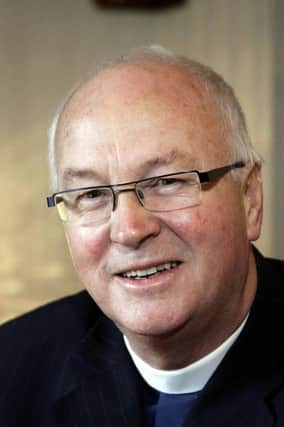Compassion in the South Atlantic


They were meeting at a place where 90 unidentified Argentinian soldiers had been buried after the conflict in the 1980’s.
Now, after painstaking research, using modern developments in DNA analysis, those 90 soldiers have been named, and relatives are able to pay their tributes to those who fell in conflict.
Advertisement
Hide AdAdvertisement
Hide AdThe man mostly responsible for this satisfying outcome is Geoffrey Cardozo. In 1983, as a young British officer, he had arrived in the South Atlantic with the task of collecting and identifying the bodies of Argentine war dead. The government in Buenos Aires refused to repatriate the bodies, insisting that they already lay on Argentine soil.
Some bodies were without name tags, and in the absence of dental records, or modern DNA resources, many were buried with the simple designation, ‘Argentine soldier known unto God’. Cardozo felt uneasy that the parents and loved ones of those soldiers would never know where their bodies lay. He said: “It really just peeved me to bury these guys with their mums not knowing about it.”
Cardozo therefore made a careful record of the location where each body had been discovered and, significantly, arranged for them to be buried inside three body bags, the better to ensure preservation of the remains, against the day when scientific advance might enable an accurate identification to be made. That day has now arrived, and hundreds gathered on a bleak hillside to pay their tributes to the newly-identified fallen.
Cardozo’s act of humanity calls to mind a much-televised incident during the Iraq War of the 1990’s. Casualties were being brought to a military hospital, and an officer asked a soldier what he was carrying. He was expecting the answer, ’Enemy wounded’. Instead what he heard were the words ‘a human being, sir!’
Advertisement
Hide AdAdvertisement
Hide AdRespect for dead opponents has not always marked human endeavour. The religious campaigner John Wycliffe died at Lutterworth in 1384 and was reverently buried, but his enemies dug up the body, burned it and scattered the ashes into a river. Oliver Cromwell’s body suffered comparable indignities after the Restoration in 1660. The treatment of the so-called ‘disappeared’ of our own sad conflict heaps shame on the cause the perpetrators claim to have been serving.
Almost 3,000 years ago a Hebrew prophet Amos, who was scathing about the sins of his own nation, was equally critical of other nations. Because the armies of Moab had ‘burned, as if to lime, the bones of Edom’s king’,(Amos 2; 1-3)the God of all the earth would punish the people of Moab.
Read Amos chapters 1 and 2, and learn that while we might not much care what happens to our enemies, the God of all the earth most certainly does. Amos would have approved of Cardozo’s foresight.